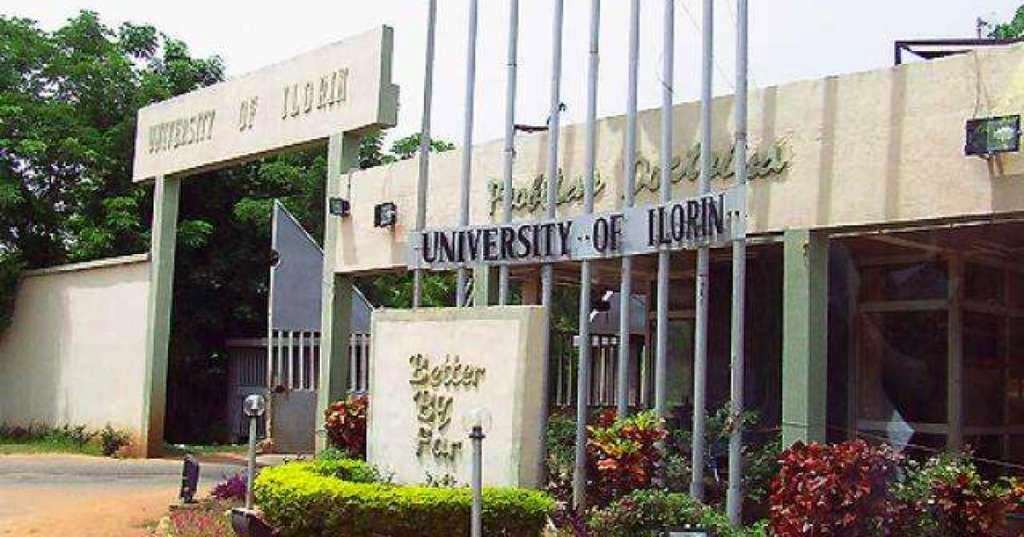The Joint Admissions and Matriculation Board (JAMB) has disclosed that the University of Ilorin (UNILORIN) and the University of Lagos (UNILAG) are among the most sought after universities in Nigeria.
TheNewsGuru.com (TNG) reports JAMB Registrar, Prof. Ishaq Oloyede disclosed this in Abuja on Saturday at the 2023 policy meeting for tertiary institutions.
He said these institutions were recognised due to the attraction of a high number of applicants during the 2023 Unified Tertiary Matriculation Examination (UTME) application period.
“The University of Ilorin came first on the list followed by the University of Lagos in the second place. Lagos State University is third on the list while Federal University, Oye-Ekiti is in fourth place,” Prof. Oloyede said.
According to the JAMB Registrar during the meeting, a female candidate, Nkechinyere Umeh came top in the 2023 UTME with a cumulative mark of 360.
Oloyede, while making presentation at the meeting, said Nkechinyere, an indigene of Anambra state scored 360 mark in the examination.
The JAMB registrar also unveiled the top 10 candidates, among whom were Stephen Aguele from Edo state, who scored 358 came second best; Oluwafemi Ositade from Osun state scored 358 and came third on the list.
Also listed are Gbolahan Ayinde from Lagos state scored 357; John Fulfilment from Edo state scored 356 and Chimdubem Ugonna from Imo scored 355, among others.
JAMB adopts cut off marks for universities, polytechnics, COE
Meanwhile, the Board on Saturday during the meeting adopted the National Minimum Tolerable score for admission into universities, polytechnics, and colleges of education as 140, 100 and 100 respectively.
Prof. Oloyede said that all institutions must abide by this rule and must not go below the approved points.
He also said that every tertiary institution must ensure its own minimum standard, especially as it relates to institutional screening and grading in the Senior Secondary Certificate Examination (SSCE), which must not be lower that 50 marks.
”All institution must abide by this minimum point. This means that no institution can go below the standard.
”For the 15 private universities that demand between 120 and 130 as minimum points, note that the 140 is sacrosanct and must not be violated.
“This is because the system put in place will not recognise 139, so ensure you comply,” he said.
Oloyede also said that institutions must not collect more than N2,000 as screening fees from candidates.
Universities to face strict sanctions for illegal admissions
Meanwhile, the Permanent Secretary, Federal Ministry of Education, David Adejo said that the policy meeting would decide and agree on the modalities and guidelines for the 2023 admissions to tertiary institutions.
”I am aware that between the last policy meeting and now, a number of initiatives have been introduced as part of updating the existing systems.
”Let us familiarise ourselves with the changes that will be unfolded as this meeting progresses.
”I also deem it necessary to reiterate one of the resolutions of the last meeting that the admission process by the institutions should be flexible in their adherence to procedure without compromising integrity.
On curbing of illegal admissions, Adejo said that the board’s Central Admissions Processing System (CAPS) had revolutionise the admission process, eliminated administrative bottlenecks and ensured seamless interface for both applicants and institutions.
”As usual with JAMB, specific advisories have been issued to guide different aspects of the process. I, therefore, urge every institution to continue to comply with all advisories as a matter of regulation.
”It is interesting to note that between last year and now, CAPS has been widened to become, in addition to its original purpose, a secure communication platform between JAMB and each of the Vice Chancellors, Registrars, Admission Officers and Directors of Academic Planning of tertiary institutions.
”Besides, the Integrated Brochure And Syllabus System (IBASS) has also been widened to accommodate safe and personalised communication among the three regulatory agencies, JAMB and the institutions,” he added.
He, therefore, commended the board for providing a platform on the ‘Condonement of Undisclosed Illegal Institutional Admission’ (CUIIA) for all such admissions conducted by various institutions outside of CAPS between 2017 and 2020.
He said that no condonement beyond 2020 admission would be entertained while calling on institutions to abide by the guidelines emphasised in the admission process.
He added that any admission found to have issued admission to any student outside CAPS would henceforth attract the strictest of sanctions irrespective of the status of the violator.
JAMB to consider use of personal devices for UTME — Oloyede
Meanwhile, Prof Oloyede has disclosed that the Board is contemplating a new policy to allow UTME candidates to write the examinations with their personal phones and other devices.
The Registrar of JAMB said this proposed policy was based on the rising cost of logistics in taking the UTME nationwide.
According to him, it cost the JAMB over N1.2billion to equip a Computer Based Test (CBT) centre in Kaduna state, particularly in procuring computers which candidates use to take the examination.
”The policy which falls under the “Bring Your Own Device” may require candidates wishing to take UTME in the future to bring their own devices to the examination hall,” he said.
At the policy meeting, the registrar expressed concern over the crave for university education among candidates at the detriment of polytechnics and colleges of education.
While condemning the wide disparity in admission quotas in the country, he advised aspiring candidates to explore other options within the tertiary education sector for admission.
TNG reports the policy meeting had in attendance representatives from the National Association of Nigerian Students (NANS), Vice Chancellors of Universities and Rectors of Polytechnics.
Others are Provosts of Colleges of Education (COE), Registrars and Admission Officers of tertiary institutions, Heads of Federal Agencies, National Youth Service Corp (NYSC) and the National Commission for Colleges of Education (NCCE).



